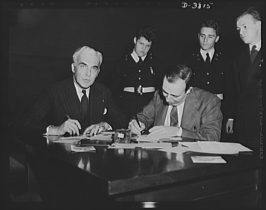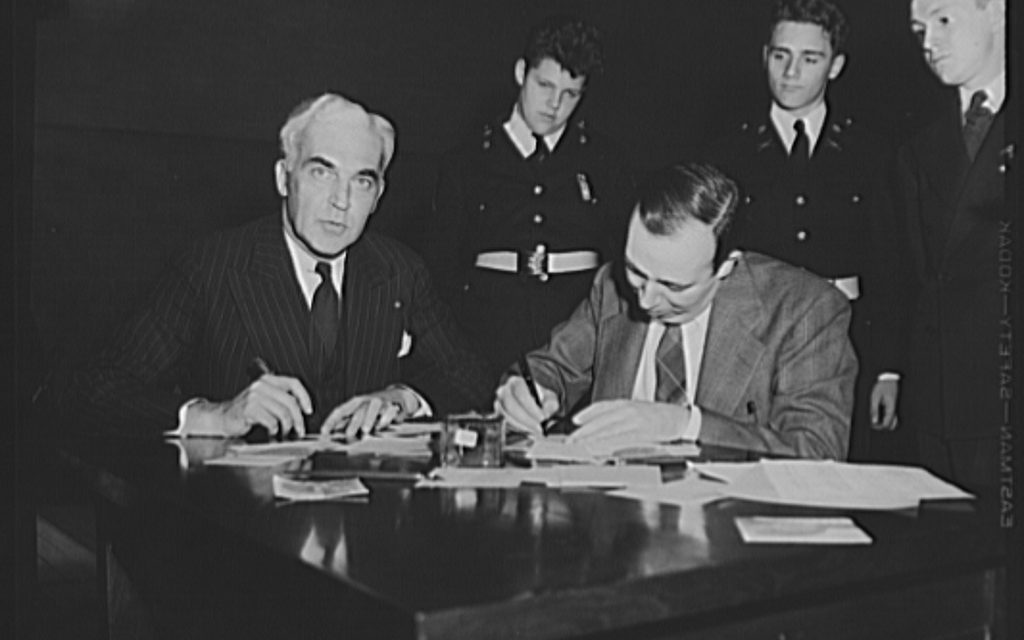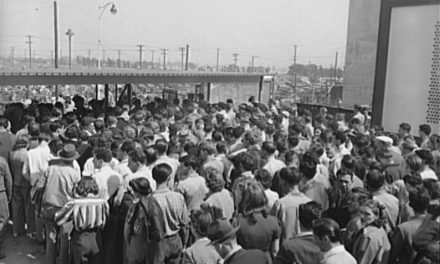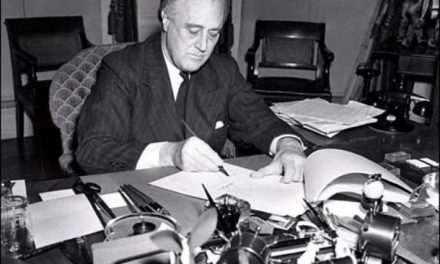Congress has issued revisions to the Selective Service Act to permit all married men deferment from Class I-A draft classification for military service until further notice. Within the next week, the new draft deferment system should reach President Franklin Roosevelt’s desk for a signature of approval or veto.
Men who were aware of their impending induction when they got married will not eligible for deferment under the new amendment. This means that the intention to avoid military service disqualifies such persons. Married men who have already been officially inducted into the armed forces will also be ineligible for a deferment.
This would be one of the biggest changes to the Selective Service Act since its passage in 1940.
“We want the unmarried men taken first,” Democrat Sen. Joshua B. Lee of Oklahoma said. “This is recognizing, in a legislative way, that the family is the fundamental unit of organized society.”
The purpose of this draft amendment, according to Sen. Lee and other officials, is to make sure that the families are “left intact as long as possible and that financial dependency is not the controlling point so much as the status of a man as the family,” Lee said.
Financial dependency requirements, or what is widely known as “the financial test,” are at present the only grounds for deferment for healthy men of fighting age. This test would be repealed as a result of this new amendment. Whether the wives and/or children of married men obtain their financial support from them will no longer affect a man’s draft classification.
To dispel fears that this new deferment law will cause a personnel shortage in the military, Sen. Warren Austin of Vermont and Sen. Elbert D. Thomas of Utah stated that the “present pools of single men or men without dependents should meet all manpower demands of the fighting forces through this year and well into 1943.”

Paul V. McNutt, (FSA) Federal Security Administrator and recently-appointed chairman of the Manpower Commission, registers under the Selective Service Act. From Library of Congress.
Currently, the minimum draft age is 21. If 18- and 19-year-old men become eligible for induction, the number of non-married servicemen would dramatically increase and the senators’ affirmations would further ring true.
Sources said that this deferment for married men could last for six months or more. However, with the direction of the war still unclear, the deferment period has been declared indefinite by the Senate Military Affairs Committee.
For the married servicemen who are already in combat and cannot benefit from the new deferment policy, the Allotment and Allowances Bill within the Selective Service Act would provide financial assistance for their families and dependents. This bill will officially be in effect in the next four months.
As the war carries on, if or when the pool of single men runs out, married men will begin to be drafted according to their family responsibilities. Men with only a wife and no children will be the first in the married-men group to be reclassified to ready-for-war Class I-A status, then men with a wife and only one child, and so forth.
Until the legislation is officially approved and put into effect by the president, local draft boards are proceeding with the classification of married men with no financial dependencies into Class I-A.
Selective Service officials expressed surprise that news of this draft amendment has not gotten much publicity, considering it will affect 18 million men, wives, children and other dependents. Some officials went on to say that “the new system will bring order into a somewhat helter-skelter system of draft deferments for married men,” according to the Wall Street Journal.
Under the new Selective Service policy, married men still have the choice of voluntarily entering the service.
Sources:
Duffield, Eugene S. “All Married Men May Get Six Months Deferment: ‘Family Tie’ Recognized.” The Wall Street Journal, June 11, 1942, p. 1.
Duffield, Eugene S. “All Married Men Deferred Until Further Notice, Local Boards Are Told.” The Wall Street Journal, June 13, 1942, p. 1.
Trussell, C.P. “Deferring of Married Men in Draft Is Written Into Allowances Bill.” The New York Times, June 13, 1942, p. 1.
“Say Family Heads Do Not Face Draft.” The New York Times, June 15, 1942, p. 21.
Duffield, Eugene S. “Classifying Married Men in I-A. Those With Wives In Jobs Still a Problem.” The Wall Street Journal, June 16, 1942, p. 1.
Duffield, Eugene S. “Enough Single Men Left To Fill Army Needs For The Rest of This Year.” The Wall Street Journal, June 17, 1942, p. 1.
Duffield, Eugene S. “Automatic Deferment Of Married Men to Be Effective in Few Days.” The Wall Street Journal, June 19, 1942, p. 1.






Did students differed during Korea have to repay the time after graduation and did being married help avoidance
My grandfather was 29 yo married with two kids in December of 1941. He was given a deferment for this situation as well as the fact that the vision in his left eye was weak. He had tried to join the Navy in 1930 but was denied entry due to his eye. In the summer of 1945 he was contacted by his local draft board and ordered to report for induction immediately. Upon reporting to the board he showed them the paperwork that the Navy had given him 15 years before stating that he was unfit for service. the board members told him that that did not matter that he was going to be drafted anyway. However, the war ended before he was shipped off.